UGHE’s New Campus a Beacon for a Brighter Future
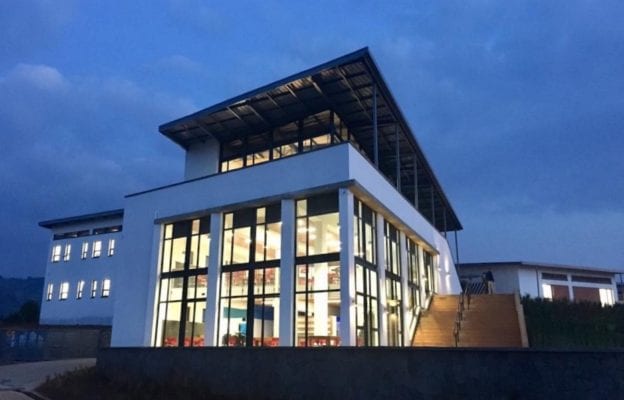
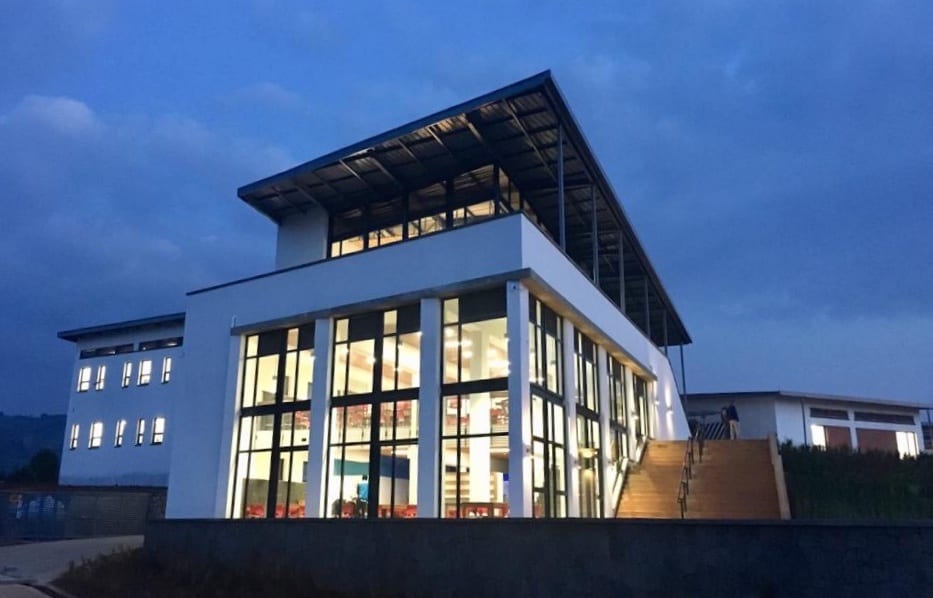
The University of Global Health Equity (UGHE) will be celebrating so much more than a new campus at its landmark Jan. 25 inauguration in northern Rwanda.
When leaders from the Government of Rwanda, Partners In Health, international academic institutions and other global health organizations gather at UGHE’s brand-new cluster of sparkling white buildings, surrounded by the Butaro region’s green hills, they’ll be celebrating an institution that is dedicated to improving health care services and delivery for underserved populations around the world. They’ll be celebrating UGHE’s innovative focus on equity and social determinants of health, which pairs education in human rights and social justice with rigorous, community-based medical training.
The university is an initiative of PIH that was launched in 2015 with catalytic funding from the Bill & Melinda Gates Foundation and the Cummings Foundation. Construction of the campus began a year later, with classes and part-time studies based in Rwanda’s capital, Kigali. The campus already is transforming infrastructure, accessibility, and employment—not to mention health services—in the Butaro community. Butaro District Hospital is just two miles away, across a valley, and will serve as one of multiple teaching hospitals for university students. The hospital and its cancer center are supported by Inshuti Mu Buzima, PIH’s sister organization in Rwanda.
Though UGHE is a private institution, the Government of Rwanda has played an important role in its development. In addition to providing financial resources and donating the land that UGHE is situated on, the Government of Rwanda has paved roads that link Butaro, Musanze, and Kigali, and increased access to water, electricity, and internet connectivity throughout the region.
All of that synergy empowers UGHE with opportunity—for students, staff, and partners; for patients, communities, and countries. Opportunity for a brighter future, and for aspiring doctors who otherwise would not have the chance to pursue their dreams. For people who thought medical school would never be within their reach. For patients who thought high-quality care would never reach them, and who thought their disease was a death sentence.
Dr. Agnes Binagwaho, UGHE’s vice chancellor, said the realization of UGHE’s vision will affect far more than academics, and far more than Rwanda alone.
“Together we are assembling the building blocks of a university that will contribute to the transformation of health service delivery, through education, mentorship and research, in every corner of the globe,” she said. “This year, the University of Global Health Equity has progressed further and faster than any of us could have imagined.”
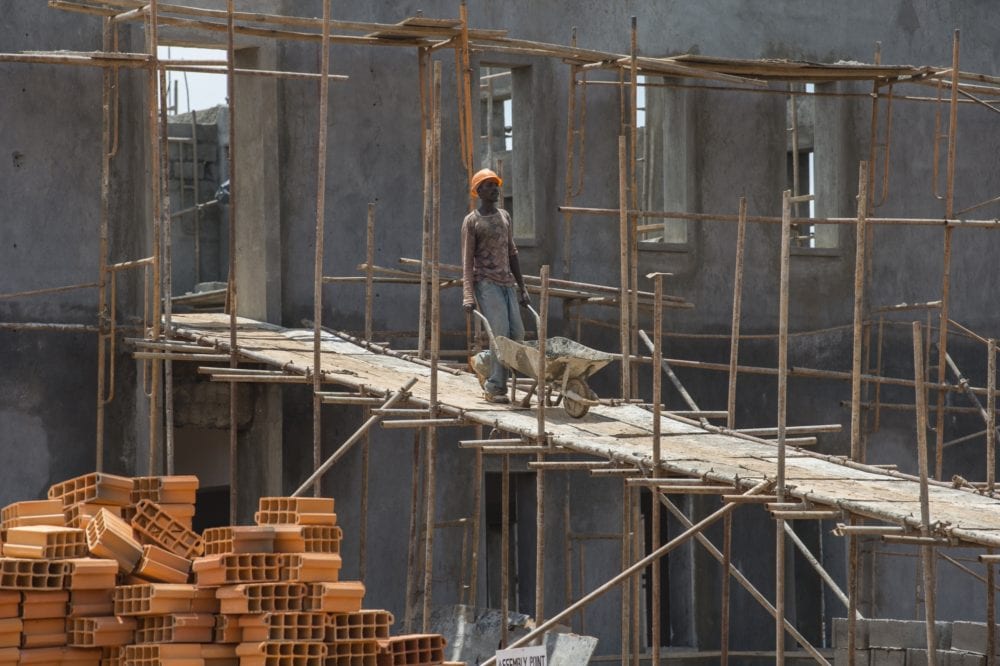
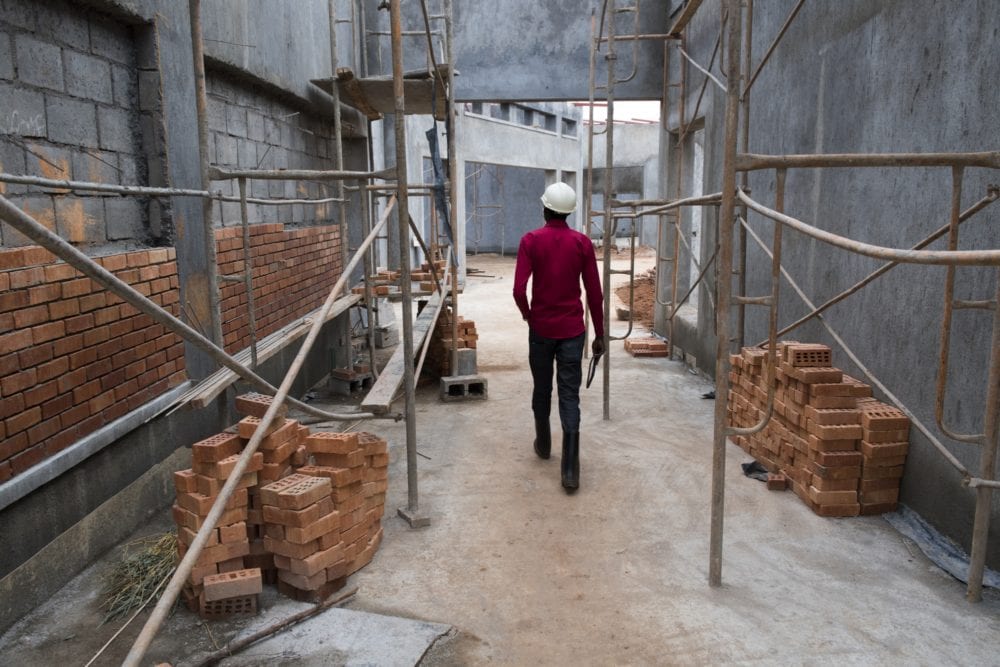
UGHE’s growth comes at a time of severe need for qualified healthcare workers across Africa. The WHO estimates the continent will have a shortage of more than 6 million healthcare workers by 2030.
With that need firmly in mind, UGHE’s new campus will provide a permanent home for health sciences education grounded in the belief that health care is a human right. The university so far has graduated two classes of part-time students who earned master’s of science degrees in global health delivery, through a two-year program. Those students gathered in Kigali for several weeks each semester, with the remainder of their studies conducted remotely or on trips with classmates and staff.
The 250-acre (100-hectare) campus is about 80 miles north of Kigali and, in the first phase of construction, includes housing for up to 200 students and staff, a dining hall and six academic buildings. The state-of-the-art academic buildings will include a clinical simulation center; a science laboratory; a 6,700-square-foot Information Commons, providing e-learning tools, tech support and a medical library; a configurable Studio Classroom, and more.
The campus’ setting in rural Butaro directly reflects the university’s mission and values.
“It’s no accident that our campus is not in an urban city-center,” said Dr. Paul Farmer, co-founder and chief strategist at Partners In Health and global health department chair at Harvard Medical School. “We want our students to understand what it’s like to deliver care in rural settings, yes, but more importantly to look beyond what they can learn in the classroom and the clinic. Some of the key lessons learned in the delivery of equitable care have been learned right here in rural Rwanda, and some of these lessons are broadly applicable in cities and many disparate settings.
“The students who study here will be encouraged to learn clinical skills while also learning how to think about the world beyond the hospital,” Dr. Farmer added. “If we’re ever going to see a world where every person, no matter who they are, receives quality health care, we need to transform the way we think about training our future leaders. Opening this beautiful, state-of-the-art campus in Butaro signals our commitment to improving care delivery not only in this region, but across the world.”
UGHE’s founding Dean of Health Sciences, Dr. Abebe Bekele, joined the university’s leadership in June. He is a highly regarded thoracic and general surgeon, former dean of the School of Medicine at Addis Ababa University in Ethiopia, and former CEO of Tikur Anbessa Hospital in Addis Ababa.
Bekele will oversee the launch of UGHE’s first medical degree program, which will give students the opportunity to earn bachelor’s degrees in medicine and surgery, jointly known as MBBS, along with the master’s in global health delivery, over six and a half years of study. All together, the program will be known as the MBBS/MGHD dual degree.
The first cohort of 30 students will begin the program in July, after the university receives accreditation by Rwandan and international governing standards. In 2025, those students could become the first graduates of UGHE’s comprehensive medical school.
“By the time they graduate, they will be doctors, with a master’s of science degree in global health delivery,” Bekele said.
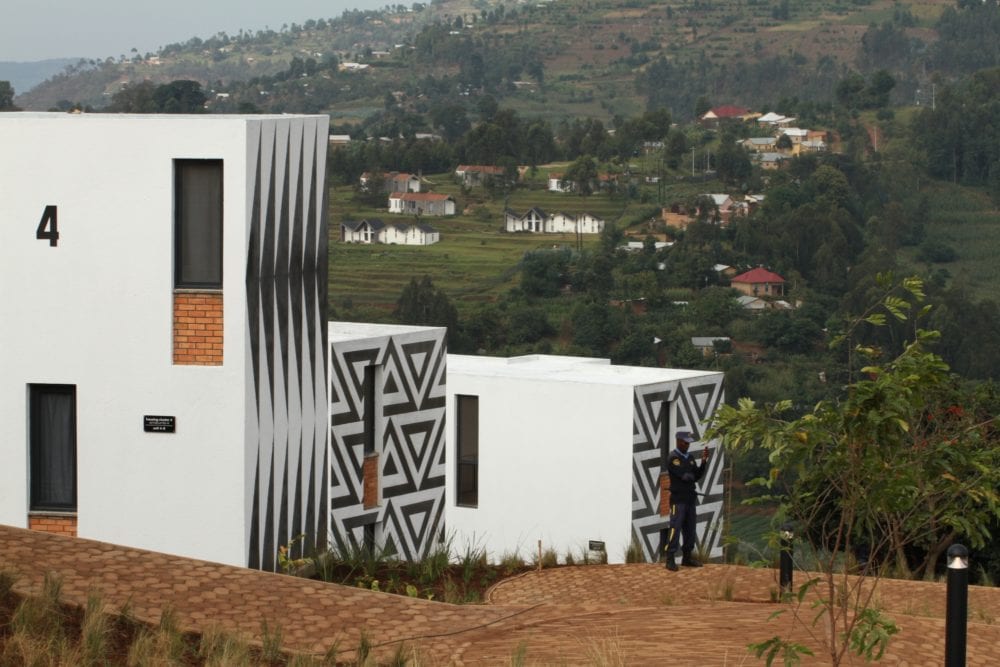
They’ll undergo a unique course of study along the way. Butaro District Hospital will provide a clinical location that essentially is on-site, just a 15-minute walk from the UGHE campus. Lessons will be tailored to address the continent’s greatest burdens of disease and gaps in care.
“Our students will learn and think about research from day one,” Bekele said. “We will pay specific emphasis on health needs that the continent demands at the present moment—that is, emergency care and safe surgery and anesthesia.”
Bekele said graduating doctors “will be able to handle emergency care medicine in all settings, and to perform, at least, essential surgical procedures” in settings with limited resources.
In their first year of study, UGHE medical students will be introduced to an education outside of medicine, to help them better understand the conditions, history and contextual realities of the patients they’ll serve.
“We are an equity-based global university,” Bekele said. “A health professional who has no idea about human rights, gender, injustice—a health professional who does not understand the history and political economics of Africa, a health professional who is not prepared in critical thinking and scientific reasoning— probably has no place in tomorrow’s Africa.”
Bekele emphasized that students will take advantage of the numerous health facilities supported by Inshuti Mu Buzima, for hands-on learning and experience in community-based education.
“We will teach the students at health posts, health centers and hospitals, as they develop through the six and a half years,” Bekele said. “Gone are the days when doctors are expected to only treat sick patients. The doctors of today need to connect with and understand the communities that they serve.”
UGHE also offers Executive Education programs. The customized short courses are designed for global health executives and so far have included partnerships with the Global Fund to Fight AIDS, Tuberculosis and Malaria; George Washington University’s Health Workforce Institute; and Yale University’s Global Health Leadership Institute, among others. The courses focus on health system strengthening, leadership, management, strategic problem-solving and more.
A third pillar of UGHE education is One Health, a concept stressing the integration of human health, animal health and the environment. An advanced program in that discipline could be about a year away, but eventually will be one of UGHE’s “signature programs,” according to Bekele.
“One Health is new to Africa,” Bekele said. “UGHE is strategically placed to play a pivotal role in representing One Health on the continent.”
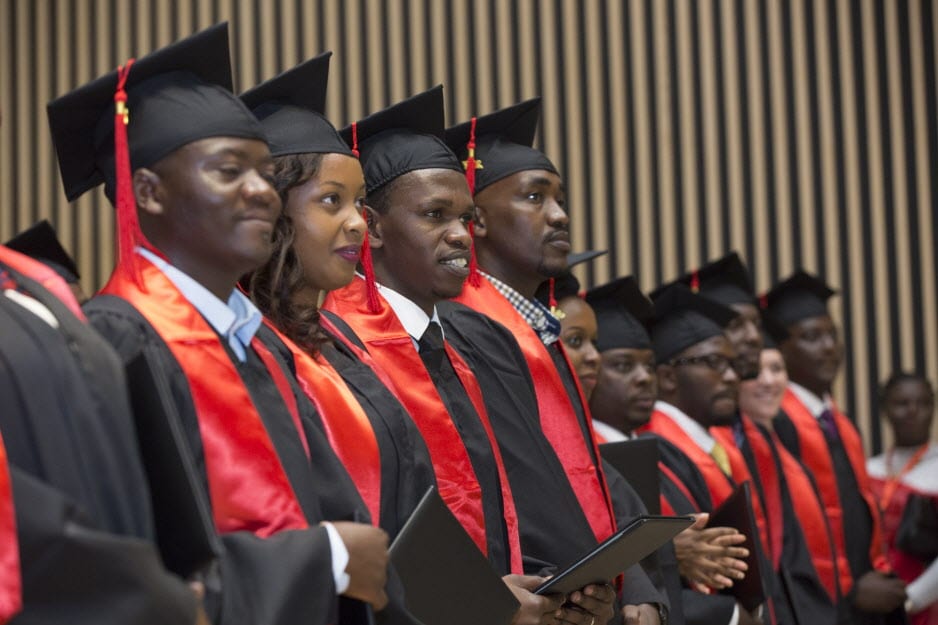
Graduates of the MGHD program already are making impacts. UGHE’s alumni community includes 37 global health leaders, who now are working in public, private and nonprofit sectors.
One of those leaders is Dieudonne Hakizimana, who graduated in 2017 as a member of UGHE’s first group of MGHD students. He came to UGHE with a master’s in epidemiology from the University of Rwanda and 10 years of experience in the health field, including four years at Inshuti Mu Buzima’s Rwinkwavu District Hospital in southeastern Rwanda.
His studies at UGHE prepared him for a leadership role in global health, with training in management, health financing and more. He is now a teaching and learning officer at UGHE, where he’ll help students reach goals of their own.
Applications to be among the next wave of UGHE students are coming from all over the world. UGHE received more than 300 applications across 26 countries in 2018, for the 24 spots in the current cohort that began studies in September.
Bekele said offering classes online soon will help meet that global demand.
Accepted students also get significant financial support from the university. All enrollees in UGHE’s global health delivery program get scholarships, which cover an average of 91 percent of the $54,000 charge for tuition, room and board. UGHE has awarded more than $1.8 million in financial aid so far.
UGHE’s alumni community already is bringing lessons from the university into their professions, and communities.
Titus K. Koikoi, a Liberian who is program director for global health nonprofit Population Services International, took an Executive Education course at UGHE, through the Global Health Delivery Leadership Program. He said the course continues to affect how he approaches his work in Liberia.
“UGHE has begun a movement that seeks to encourage all involved with global health delivery to begin rethinking health care and looking into more efficient models for health services delivery,” he said. “I feel humbled that my work in global health gives me an opportunity to plan and manage service delivery for my fellow Liberians, and by extension, the world’s population in general. I feel challenged on a daily basis to give back to society, and to be a critical voice that advocates for access to health by all.”
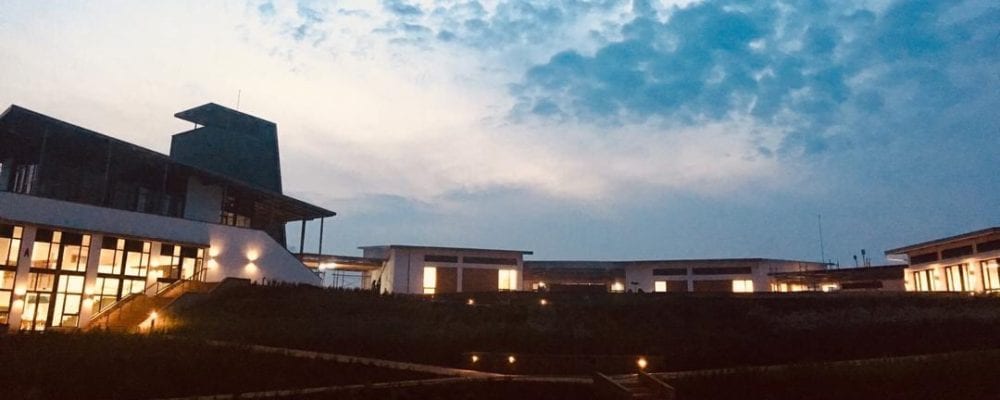
Article originally posted on pih.org.
See how PIH Canada is supporting the first emergency medicine residency in Haiti.



